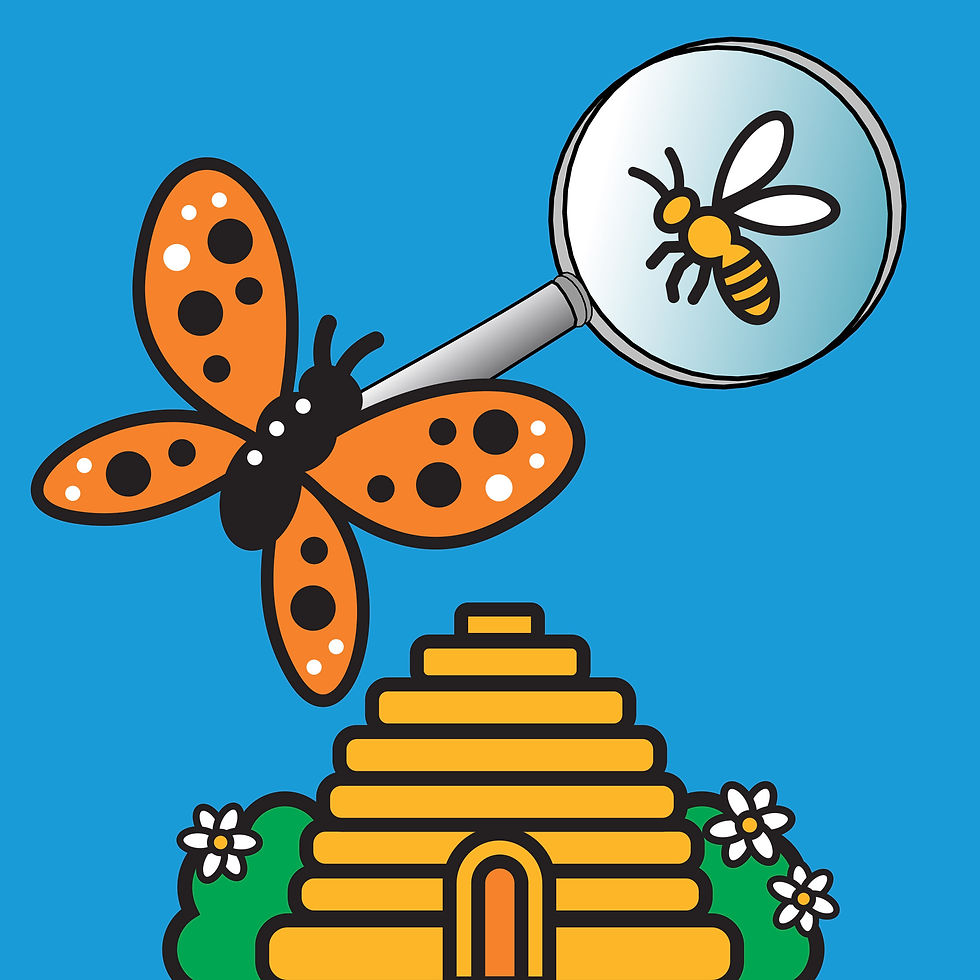National Pollinator Week 2018 Is Here - And So Are Mosquitoes!
- Admin
- Jun 15, 2018
- 2 min read

"Bee At Home In Decatur," our city-wide celebration of National Pollinator Week 2018 starts on Monday! Thank you to Decatur Mayor Patty Garrett and the members of the Decatur City Commission for recognizing the week with an official city proclamation. According to the Pollinator Partnership, "Eleven years ago the U.S. Senate’s unanimous approval and designation of a week in June as “National Pollinator Week” marked a necessary step toward addressing the urgent issue of declining pollinator populations. Pollinator Week has now grown into an international celebration of the valuable ecosystem services provided by bees, birds, butterflies, bats and beetles."
Decatur's celebration will feature walks, talks, a honey tasting, native plant sale, Monarchs film screening, kids' art activities, photography and more! Most events are free. All are open to the public. For a complete schedule of events, see:
https://www.beecaturga.com/npw-2018-events-info
During National Pollinator Week 2018 (June 18 -24), you can participate in our Great Pollinator Scavenger Hunt! You could win great pollinator-related prizes!!! Here's how it all works:
• Between June 18 and 24, visit the featured Decatur businesses listed at:
https://www.beecaturga.com/npw-2018-scavenger-hunt
• Find the "Bee At Home In Decatur" Scavenger Hunt poster at each business
• Each poster will feature one word clue that's part of our secret nine-word pollinator week Scavenger Hunt phrase
• Collect all nine words and assemble them to complete the Scavenger Hunt phrase
• Submit your answer phrase via the web form below for a chance to win a variety of pollinator week prizes -- including books, coffee, t-shirts and much more!
• Winners will be chosen at random from correctly submitted entries
Happy hunting!

The wet weather this Spring, along with fears of the Zika and West Nile viruses, have fueled a boom in backyard mosquito abatement services. But are these spraying or misting services harmful to bees? Absolutely!
Mosquito spraying and whether it affects bees is the number one question we receive at Beecatur. Typically, backyard mosquito control services utilize liquid solutions containing Pyrethrins or Pyrethroids. Pyrethroids are derived from the Chysanthemum flower and are often marketed as “environmentally-friendly,” “biodegradable,” “organic,” "green" and “natural.” When used outdoors at low levels, they are officially labeled as safe for use around people. However, the EPA states -- unequivocally -- that pyrethrins and permethrin are toxic to all insects and kill beneficial insects such as bees, ladybugs, butterflies and other non-target species along with mosquitoes. They are also highly toxic, in run-off, to aquatic species including fish and amphibians.
What’s the alternative? Remove sources of standing water where mosquitos breed.
Use “dunk”-style larvicides in birdbaths and ponds. Because mosquitoes are notoriously
weak fliers, keep air moving with a box fan when you sit outside. Apply bug repellents to
your skin. Don’t like DEET? Try organic repellents that contain Lemon Eucalyptus oil.
For more information:
Consumer Reports on Mosquito Control Services:
https://www.consumerreports.org/insect-repellent/should-you-spray-your-yard-for-mosquitoes-and-ticks/
EPA Permethrin Fact Sheet:
https://www3.epa.gov/pesticides/chem_search/reg_actions/reregistration/fs_PC-109701_1-Jun-06.pdf
EPA on Misting Systems:
How to Control Mosquitoes Without Killing Pollinators and Other Important Wildlife:
https://armn.org/2016/02/19/how-to-control-mosquitoes-without-killing-pollinators-and-other-important-wildlife/
Photo credit: Adobe Stock










Comments